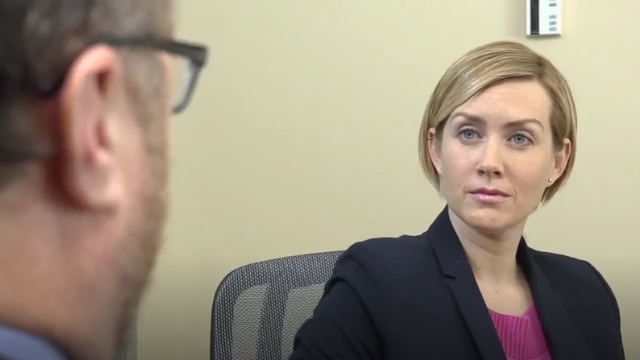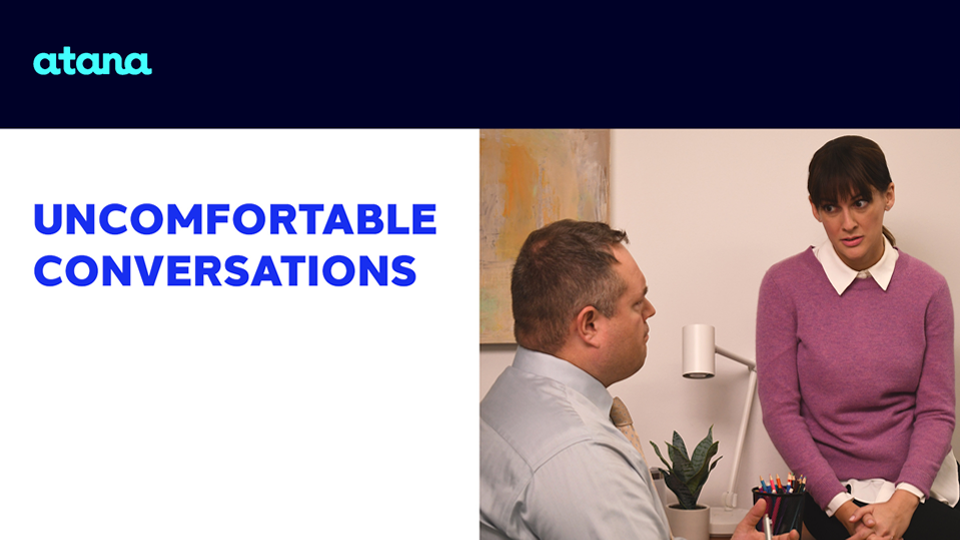
85% of employees have experienced an annoying coworker
This according to a recent KickResume survey. The question is, what can workers do about it? In your personal life, you can avoid someone who irritates you by walking away or choosing not to spend time with them. But in the workplace, you can't escape—you still need to work together.
The Best Course of Action: Speak To Them Directly
While not always easy, the best way to handle people at work who make your life challenging is to speak to them directly. Nothing will ever change if the offending party isn’t confronted. Here are some guidelines:
- Make sure you've identified the problem
- What is the specific behavior that needs to be addressed?
- What makes it challenging for you?
- Use “I” statements. An “I” statement explains how someone else’s actions affect you and is much more effective than accusing someone with “You” statements like “You were totally off-base...”:
- "I felt really angry when you…”
- "I got frustrated when you…”
- Keep your emotions in check and stay on track
- Clearly set up your expectations. Say something like, “Going forward, I expect that you will…:
- …not interrupt me or talk over me."
- ...keep me in the communication loop."
- ...give credit where credit is due.“
Often, assertively and clearly stating your expectations will solve the problem. But some difficult colleagues just aren’t that agreeable. When confronted, they may not change their behavior at all—or it might make things worse. What then?
- Choose your reaction.
You can’t control what other people do, but you have total control over how you react. Sometimes that means taking a deep breath, counting to three, or ignoring the difficult behavior.
It’s not easy to ignore rudeness—even if you’re used to the person’s difficult personality. But, when you remain poised and ignore poor behavior, you diffuse the emotion of the situation and show everyone else your self-confidence and control.
Play the video clip to the right to see a good example of what remaining poised looks like.
What About the Others in the Meeting?
In the video clip above, everyone in the room was aware of the man's disrespectful treatment of his coworker...but they did nothing. Could they have stepped in? Should they have? Here are some guidelines:
- If the targeted coworker is handling the situation, as the woman in our video clip did, there is no need to intervene in the moment.
- If the targeted coworker is uncomfortable, at a loss for words, or if the difficult employee continues to disrespect, harass or berate, then be an upstander by:
- Addressing the targeted coworker directly with something like "Mary, I’d like to hear more about your idea..."
- Addressing the difficult coworker by saying something like, "Daniel, I think we should hear Mary out..."
- Talk with the targeted coworker after the meeting. Acknowledge that what happened is not okay. If there is a pattern of disrespectful treatment, encourage your coworker to speak up. Offer to go with them.
When People Go Beyond Difficult
For whatever reason, some people are downright mean-spirited and seem to go out of their way to make your life miserable. If their behavior is abusive, harassing, or hinders the work that you need to do, talk to another manager or human resources. Everyone deserves to work in an environment that is respectful and free from harassment.
Dealing with difficult people is stressful, in part because we may feel out of control by what’s happening. You can’t change a difficult personality. But you can choose how you react.
If you’ve had someone in mind as you’ve been reading this, you probably already have some thoughts about what you might say or do. That’s a first step. Make a plan to approach that person with the tips you’ve learned. By clearly stating your expectations, and choosing your reactions ahead of time, you can rise above and disengage from the drama of an unhappy, disagreeable colleague.
About the Author


Michele Chiarella — Director of Learning, Atana
Michele leads Atana's Learning Development, overseeing a team that develops engaging video-based eLearning that imparts knowledge and teaches skills while assessing desired workplace behaviors. Working closely with our Behavioral Data Science group, she and her team create courses that combine highly-relatable vicarious learning experiences with built-in behavioral assessments to ensure the training drives business outcomes.


Michele Chiarella — Director of Learning, Atana
Michele leads Atana's Learning Development, overseeing a team that develops engaging video-based eLearning that imparts knowledge and teaches skills while assessing desired workplace behaviors. Working closely with our Behavioral Data Science group, she and her team create courses that combine highly-relatable vicarious learning experiences with built-in behavioral assessments to ensure the training drives business outcomes.










